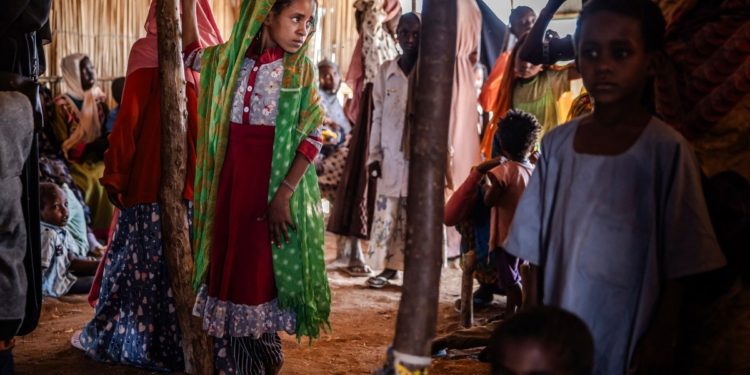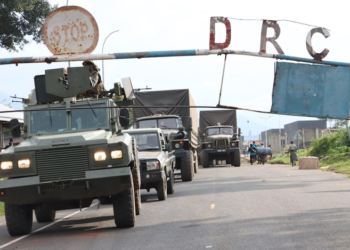By AL JAZEERA
UN aid chief says 730,000 Sudanese children are thought to suffer from ‘severe’ malnutrition.
Nearly five million people in Sudan are at risk of “catastrophic” hunger in the coming months, the United Nations has warned, calling for the country’s warring parties to allow aid deliveries.
In a note to the UN Security Council on Friday, UN aid chief Martin Griffiths said acute levels of hunger were being driven by the impact of the conflict on agricultural production, damage to major infrastructure and livelihoods, disruptions to trade, severe price hikes, impediments to humanitarian access and massive displacement.
“Without urgent humanitarian assistance and access to basic commodities … almost 5 million people could slip into catastrophic food insecurity in some parts of the country in the coming months,” Griffiths wrote.
He said it was likely that some people in West and Central Darfur would move into famine conditions as security worsens, adding that cross-border aid delivery from Chad to Darfur is a “critical lifeline”.
“This is a moment of truth. The parties must silence the guns, protect civilians and ensure humanitarian access,” Griffiths said in a post on X.
#Sudan is barreling toward a full year of war.⁰⁰Despite a Security Council resolution calling for a cessation of hostilities during Ramadan, the fighting continues.⁰
This is a moment of truth. The parties must silence the guns, protect civilians and ensure humanitarian access.— Martin Griffiths (@UNReliefChief) March 15, 2024
He noted that nearly 730,000 Sudanese children – including more than 240,000 in Darfur – are thought to suffer from “severe” malnutrition.
“An unprecedented surge in the treatment of severe wasting, the most lethal manifestation of malnutrition, is already being observed in accessible areas,” Griffiths said.
Tens of thousands of people have been killed since war broke out last April between the General Abdel Fattah al-Burhan-led Sudanese Armed Forces (SAF) and the paramilitary Rapid Support Forces (RSF) of General Mohamed Hamdan “Hemedti” Dagalo.
Some 8.3 million people have been displaced from the country, many forced into neighbouring Chad and South Sudan.
Millions in need of aid cannot access it as the warring factions “deliberately” deny access to supplies, the UN has warned earlier and said this could amount to a war crime.
Ceasefire calls ignored
Last week, the UN Security Council called for a ceasefire to coincide with the start of the Muslim holy month of Ramadan.
The SAF rejected the truce, saying it would only halt attacks if the RSF pulled out of the swaths of area it now controls.
The RSF, which appeared to be gaining the upper hand in the war, has been accused of atrocities such as summary killings and armed robberies in the provinces under its control. Women have also allegedly been raped or abducted by the group – or by militias aligned with it.
On March 12, SAF recaptured the national radio and television building in Omdurman, Sudan’s second largest city.
Griffiths said earlier that humanitarian aid access in Sudan needs to be improved whether or not a ceasefire is declared.
Half of the country’s 50 million people require aid and “just under 18 million people are on the road to famine,” Griffiths said, adding that 10 million more people “are in the category of food insecure than the same time last year”.
The UN’s $2.7bn humanitarian response plan for Sudan in 2024 has been only 4 percent funded.







Discussion about this post